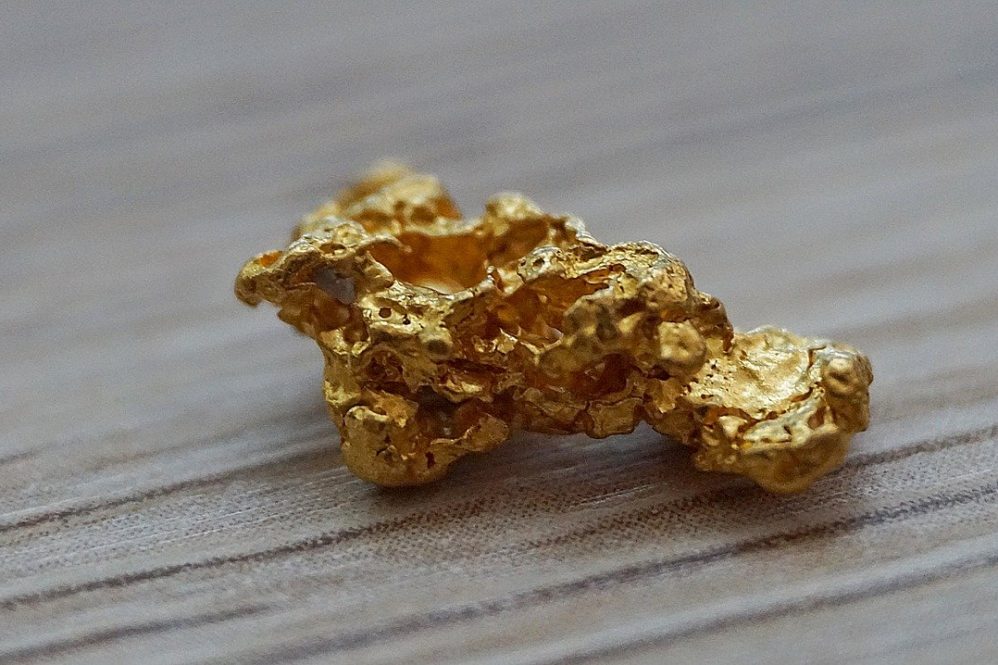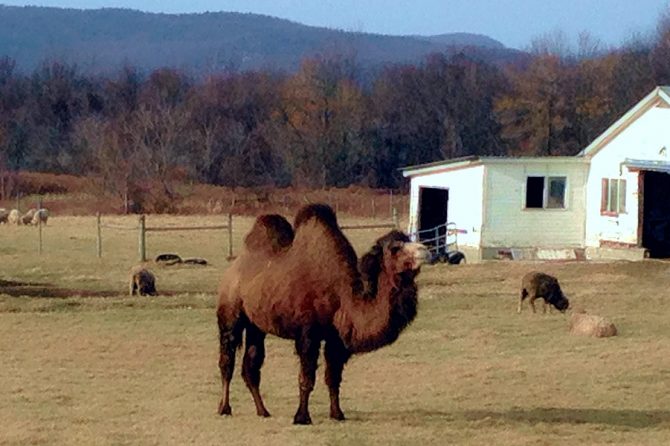Let's get rich panning for gold in Vermont!
As the saying goes, “there's gold in them thar hills!“, but that was mainly out West. What many people do not know is that people have been prospecting for gold in Vermont for years. Although the yield from prospecting for gold in Vermont is relatively low, the best bet for a gold prospector is in the general areas around Plymouth and Bridgewater, VT. (Ottauquechee River) where lode deposits have supplied gold to many of the nearby waters in the area.
Natural Vermont gold of the highest purity
A surprising fact about gold from the Plymouth and Bridgewater area, is that it assays as some of the purist natural gold in the world, near 23.5 karats. This is a higher figure than nearly all of the famous gold regions in the United States. Most gold nuggets assay in the range of 18k to 20k. Finding gold in VT, can be difficult but there are prospectors who have indeed been successful in finding gold larger than merely flakes and nuggets in the Green Mountains.
Ok, I've got my gear. Where do I find the gold???
Finding and panning gold in Vermont can be a fun and rewarding activity for those interested in exploring the state's natural resources. Although Vermont is not known for its gold deposits, there have been numerous reports of small amounts of gold being found throughout the state.
One of the most popular areas for gold panning in Vermont is the West River near Jamaica. This area has been known to produce small amounts of gold, and it is also a beautiful spot to spend a day exploring the river and its surroundings.
Before you start prospecting for gold here is what you need to know
To start gold panning in Vermont, it is important to first obtain permission from the landowner or the appropriate government agency. In Vermont, the Department of Environmental Conservation issues permits for recreational gold panning in certain areas.
Once you have obtained permission and a permit, the next step is to find a suitable location. Look for areas with exposed bedrock or gravel bars in streams or rivers, as these are often the areas where gold can accumulate. It is also important to choose an area where there is a good water flow, as this helps to keep the gold moving and prevent it from settling in one spot.
To start panning for gold, you will need a few basic tools, including a gold pan, a shovel, and a classifier to help separate the larger rocks and debris from the finer material. To begin, scoop up some gravel and sand from the river or stream bed and place it in the gold pan. Submerge the pan in the water and use a swirling motion to wash away the lighter material, leaving the heavier material, including any gold, in the bottom of the pan.
Get your gear and head for the White River! The winding stretch along Highway 107 between Gaysville and Bethel is a known gold producing spot. Creeks and streams around Shady Rill are known to contain small traces of gold. It is located just west of the Wrightsville Dam; seek out the Herrick, Martins, and Patterson Brooks in the area. This region is just a few miles north of Montpelier, VT.
Other places to seek out and prospect for gold include Mad River in Warren, Minister Brook near the town of Worcester, Rock River near Williamsville and West River. Gold has also been found in the Black River in Windsor County. The Missisquoi River may also yield some gold delights around the towns of Troy and Lowell. They say that Stowe is a “gold town” and that could be literally true! Gold has been found in the Little River and in Gold Brook, which really lives up to it's name!
Are There Any Historic Sites in Vermont That Are Linked to Gold Mining?
Vermont historic sites revealed: Yes, there are historic sites in Vermont linked to gold mining. One such site is the Elizabeth Copper Mine in South Strafford. Operating in the 19th century, it produced both copper and traces of gold. Another notable site is the Egan Quarry in Barre, where gold was occasionally found along with granite.
Gold panning in Vermont is for recreational purposes only
It is important to remember that gold panning in Vermont is strictly for recreational purposes only, and any gold found must be small and incidental. It is also important to respect the environment and leave the area in the same condition as you found it.
In conclusion, while finding and panning gold in Vermont may not make you rich, it can be a fun and exciting way to explore the state's natural resources and spend time outdoors. With the right tools, a little bit of patience, and a love for adventure, you never know what treasures you might uncover in Vermont's rivers and streams.
There you go. Now that you have the secret to getting rich in Vermont, let the prospecting begin! Just remember to sprinkle a few nuggets my way if this helps you along the path to becoming a gold baron in Vermont.
Thank you for reading this post, don't forget to subscribe to our email list for the latest news!





